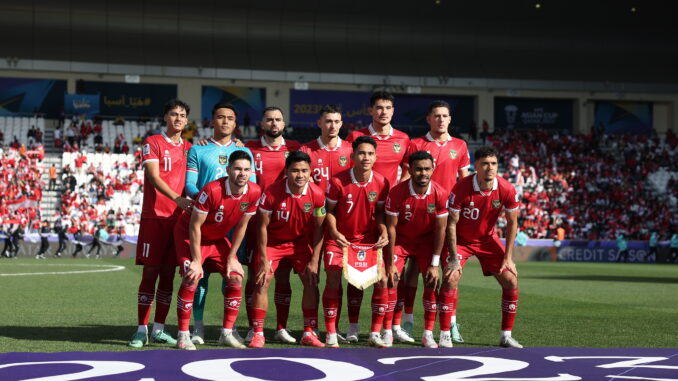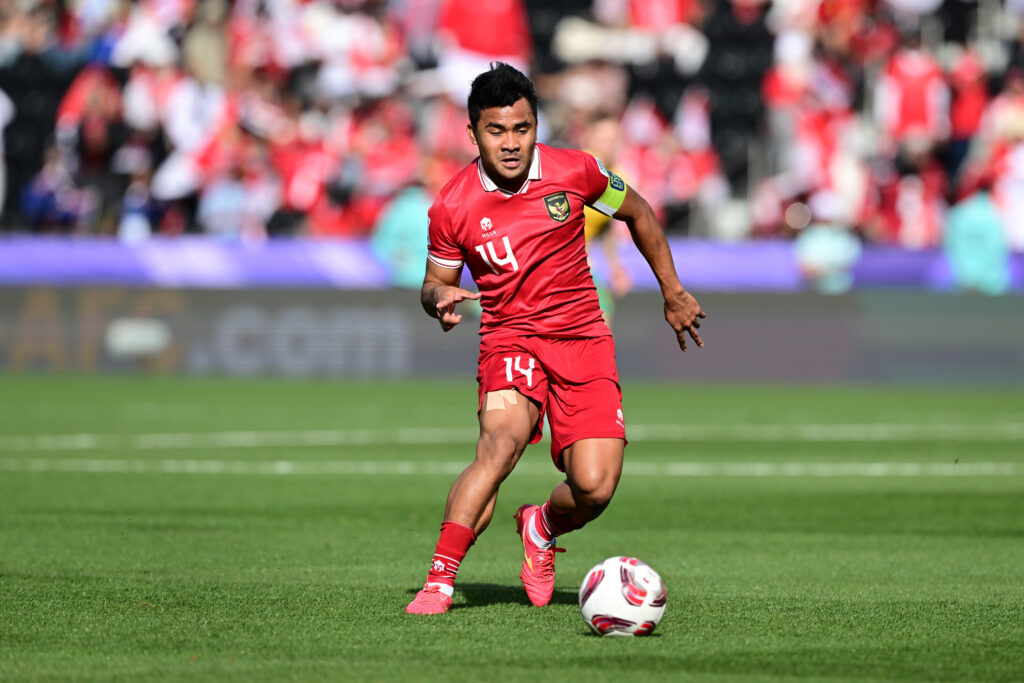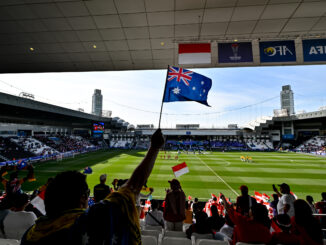
When it mattered most, suddenly Indonesia became the team they have always had the potential to be at continental level; technically sound, capable of sustained spells of possession where they shift the opposition from side-to-side, able to penetrate both centrally and from wide areas and with a high, aggressive, defensive line.
Gone was the hesitancy, the lower defensive block, the lack of crispness and movement in their passing and build-up and the lack of belief that punctuated most of their group stage outings.
On paper, the 4-0 defeat against Australia was the Garuda’s worst result at the ongoing Asian Cup but on the pitch it was their best performance.
This is the issue that has long plagued reaction and analysis in Southeast Asia where scratchy, ‘heroic’ wins, are lauded and heavy defeats, where the team has often played well, being denounced.
Hopefully this match against an Australia side that, even with their own issues, remain among the tournament favourites, is the marker that provides belief.
It’s that quality that’s often been the divider between performance and results when stepping outside of regional competitions and it’s one that’s been, by and large, driven by foreign coaches.
As we’ve seen with nations such as Tajikistan at this tournament when you marry technical quality with a coach that gives the players both belief and freedom, results often flow.
There is no question that Indonesia has the players to match all bar the very best at this tournament in terms of their raw technical qualities, so it remains a mystery why they waited until the knockout stage to finally be able to, or perhaps allowed to, play in a manner that allows those qualities to fully shine.
Speaking after the match the impressive defender, Shayne Pattynama, told The Asian Game that the players too enjoyed being able to play without fear or constraint and that this is the way the team must continue to approach things at continental level.
“In the first half I feel we had control, we were pushing high, we had lots of energy, were good on the ball, created some chances and we made it difficult for Australia.
“We have a really young team but we have good players and we know we can play football and we wanted to show courage and go at Australia instead of waiting like cowards because it’s not the way you want to go into a game.
“That high line, keeping the ball, going forward and playing; we’re starting to feel that we can really grow now because we have great talents and this is only the start for Indonesia.”

It’s been well documented that Indonesia were the youngest nation at the tournament but they were also one of the most inexperienced, with first XI mainstays Ernando Ari, Sandy Walsh, Ivar Jenner, Justin Hubner and Rafael Struick, as well as Pattynama all having less than ten caps at the start of the competition and all will have grown tremendously from their time in Qatar.
This is a fantastic bedrock for what could be the finest generation for many years and as they’ve shown in the match against Australia, when allowed to play to their strengths, this youthful Garuda outfit can match it with some of Asia’s elites.
As always, the issue is to not get drawn into the results equal performance narrative and next month presents a wonderful opportunity for the side to translate things from this final match in Qatar onto the FIFA World Cup qualification stage as they face Vietnam in decisive, back-to-back, qualifiers.
Six points there and the nation is well and truly on the path to reaching the latter stages of qualification and that very much has to be the aim for this hugely talented young side that could chart a new course for Indonesian football.
Photo: Asian Football Confederation
Listen to The Asian Game Podcast as we discuss Indonesia’s impressive performance at the AFC Asian Cup 2023




